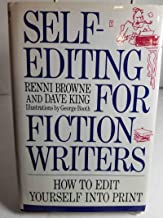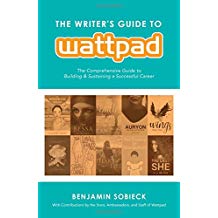Book Recommendation: Self-Editing for Fiction Writers
Title: Self-Editing for Fiction Writers: How to Edit Yourself into Print
Author: Renni Browne and Dave King
Publisher: HarperPerennial (A Division of HarperCollinsPublishers)
ISBN: 0-06-270061-8
Pages: 240
Publication Date: March 1, 1994
A writer friend of mine suggested I read Self-Editing for Fiction Writers and I am so glad I did. The book is not only helpful for editing, but it also offers a wealth of guidance during the actual writing process. Authors Renni Browne and Dave King have worked at The Editorial Department for a number of years, and they offer sound, practical, and easy to follow advice. Each chapter covers the most important aspects of story writing like showing rather than telling, paying attention to point of view, and pointers for writing dialogue. The following are a few words of advice Browne and King offers fiction writers:
- They write about beats in dialogue. “Beats are the little bits of action interspersed through a scene, such as a character walking to a window or removing his glasses and rubbing his eyes—the literary equivalent of what is known in the theater as stage business” (p. 102). Beats can also include interior monologue, or a character’s inner dialogue. Beats serve three purposes: 1.) They give readers insights into a character’s personality. 2.) They add rhythm and variety to dialogue. 3.) They allow readers to form a picture of what is happening in the scene. But at the same time, Browne and King caution too many beats can interrupt a scene to the point that it loses its tension or flow.
- Be careful about proportion in your writing. Do not fill in every detail and leave nothing to the reader’s imagination. Example: “Joe saw the orange and white cat with the light green eyes and short whiskers run across the sixteen-foot oak tree whose leaves had fallen down this past month.”
- Avoid needless repetition. Example: “Sue missed the house she lived in while growing up. The house was spacious and comfortable and her parents had hosted many parties at this house. Sue thought about the house often.” The writing will not flow and interfere with the readers’ enjoyment of the story.
- Stay away from cliches, such as “Think outside the box” and “The pot calling the kettle black.”
- Avoid -ly adverbs. Strive for strong verbs in place of a weak verb with an adverb. For example, replace “Angrily she put the book on the desk” with “She slammed the book on the desk.”
- Do not overuse as and -ing constructions. Although they are grammatically correct, a writer should not use them in a story because, as Browne and King explain, they “…take a bit of action…and tuck it away in a dependent clause” and “they sometimes give rise to physical impossibilities” (p. 156). Examples: “As she unpacked her suitcase, she glanced at her mother from the window” or “Unpacking her suitcase, she glanced at her mother from the window.” Better: “She unpacked her suitcase and glanced at her mother from the window.”
- Do not overuse interior monologue to the point where it is constantly interrupting dialogue, repeating what is already mentioned in the actual dialogue, or packing them in with too much information.
- Use dashes (–) for interruptions and ellipsis (…) for gaps in the dialogue.
- This is probably the flaw fiction writers hear the most: Show, don’t tell. Instead of telling readers a man is greedy, show him paying his workers a meager wage while keeping all the profits for himself. The authors also write, “Are you describing your characters’ feelings? Have you told us they’re angry? irritated? morose? … Keep an eye out for any places where you mention an emotion outside of dialogue. Chances are you’re telling what you should show” (p. 11).
- Do not keep shifting the point of view. The point of view may be in the first person, it may be omniscient (not inside any of the character’s heads), or third person. When choosing third person, keep it consistent. If the writer wants to change the point of view, there has to be a scene or chapter break.
- When writing dialogue, be sure to use contractions (I’m, can’t, etc.) because you want to write the way people talk. You can also include sentence fragments. Avoid using complex words with many syllables unless that particular character uses them all the time. You want to write dialogue that sounds natural.
Important points to keep in mind!
The book includes a checklist and exercises at the end of the chapters. I recommend Self-Editing for Fiction Writers as a reference book. For this fiction writer, I found it truly helpful in the writing and editing processes.
Idelle Kursman is an editor, proofreader, and SEO copywriter. She is also the author of the novels True Mercy and The Book of Revelations.
Book Recommendation: Self-Editing for Fiction Writers Read More »


